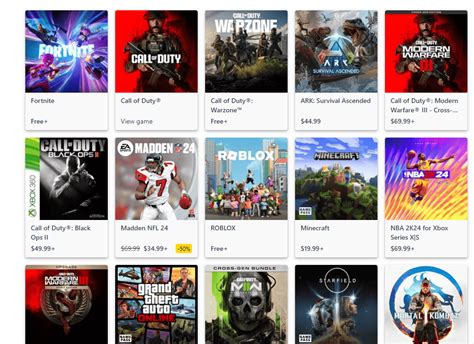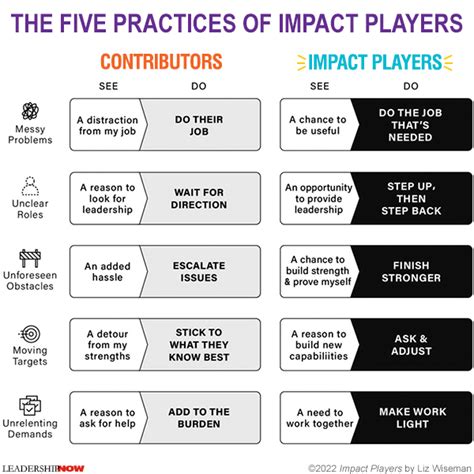Breaking News


Popular News


Explore the ethical implications of in-game purchases in mobile gaming, including impact on player experience and regulatory measures, as well as developers’ responsibility and transparency. Balancing profitability and player satisfaction.Mobile gaming has become a widespread and lucrative industry, with in-game purchases playing a significant role in the revenue of many games. While these purchases can enhance the player experience and support continued game development, they also raise ethical concerns about transparency, player satisfaction, and the potential for exploitation. In this blog post, we will delve into the complex world of in-game purchases in mobile gaming. We’ll explore the impact of these purchases on the player experience, ethical considerations surrounding their use, and the regulatory measures and guidelines that are in place to govern them. Additionally, we’ll discuss the responsibility of game developers in ensuring transparency and balancing profitability with player satisfaction. By examining these subtopics, we aim to provide a comprehensive understanding of the ethics of in-game purchases in mobile gaming and prompt meaningful discussions about their implications.
Contents

Understanding in-game purchases is essential for players to make informed decisions when it comes to spending their money in mobile gaming. In-game purchases refer to the buying of virtual goods, currencies, or additional content within a game using real money. Players often have the option to make these purchases to enhance their gaming experience or progress more quickly within the game.
In many cases, in-game purchases offer players the opportunity to customize their gaming experience and support the development of their favorite games. However, it’s important for players to be aware of the potential risks associated with in-game purchases, such as overspending, addiction, and unethical monetization strategies.
Furthermore, understanding the psychology behind in-game purchases, including the use of persuasive techniques and behavioral triggers, can help players make more mindful decisions regarding their spending in mobile gaming. Developers and publishers also play a crucial role in ensuring that in-game purchases are presented in a transparent and responsible manner, prioritizing player well-being and satisfaction.
Overall, understanding the nature of in-game purchases is key to promoting a healthy and ethical gaming environment, where players can enjoy the benefits of microtransactions without falling victim to predatory practices or financial exploitation.

In-game purchases have been a controversial topic in the world of mobile gaming for many years. One of the main concerns surrounding this issue is the impact it has on the overall player experience. When players are bombarded with constant in-game offers and purchases, it can disrupt their immersion in the game and detract from the enjoyment they should be experiencing.
Furthermore, the presence of in-game purchases can create an unbalanced playing field, where those who can afford to spend more money on the game have a significant advantage over those who choose not to. This can lead to frustration and dissatisfaction among players, ultimately tarnishing their gaming experience.
Additionally, excessive in-game purchases can lead to addiction and irresponsible spending among players, which can have detrimental effects on their overall well-being. It is important for developers to consider the potential negative impact of in-game purchases on the player experience and take steps to mitigate these effects.

There are growing concerns about the ethical implications of in-game purchases in the mobile gaming industry. Many players and parents are worried about the addictive nature of these purchases, especially when targeted towards younger audiences. The use of microtransactions and loot boxes has been criticized for promoting excessive spending and potentially leading to gambling-like behaviors.
Furthermore, there is also the issue of transparency and fairness in in-game purchases. Players may feel misled or exploited if they are not fully informed about the potential costs and probabilities of obtaining certain items. This lack of clarity can erode trust in the gaming industry and detract from the overall gaming experience.
Regulatory measures and guidelines need to be established to address these ethical concerns. Mobile game developers have a responsibility to ensure that in-game purchases are not preying on vulnerable individuals or encouraging irresponsible spending. By implementing clear guidelines and restrictions, the industry can protect players and promote a more ethical approach to monetization.
In conclusion, the ethical concerns surrounding in-game purchases in mobile gaming are an important issue that needs to be addressed. It is crucial for the industry to prioritize player well-being over profitability and to uphold ethical standards in their monetization strategies.

When it comes to in-game purchases in mobile gaming, it’s important to consider the regulatory measures and guidelines put in place to protect players. These measures are designed to ensure that players are not taken advantage of or subject to unfair practices by game developers and publishers.
One of the main regulatory measures in place for in-game purchases is the requirement for developers to provide full transparency regarding the costs and potential risks involved. This includes clearly outlining the types of purchases available, their associated costs, and any potential impact on gameplay. Developers must also provide easy access to terms and conditions, as well as clear information on how to manage or restrict in-game purchases.
Furthermore, regulatory guidelines often emphasize the importance of obtaining informed consent from players before processing any in-game transactions. This means that players must be fully aware of what they are purchasing and the implications before making a decision. Developers are also typically required to provide mechanisms for players to easily revoke this consent or seek refunds for inappropriate or unauthorized charges.
In addition to these guidelines, regulatory measures also strive to protect minors from exploitation through in-game purchases. This includes implementing mechanisms to prevent minors from making unauthorized purchases, as well as safeguards to ensure that any purchases made by minors are done with the explicit consent of a parent or guardian.

The Ethics of In-Game Purchases in Mobile Gaming
When it comes to in-game purchases in mobile gaming, the responsibility falls on the developers to ensure transparency and ethical practices. Players often invest time and money into these games, so it’s crucial for developers to be accountable for their monetization strategies. This includes being open and honest about the costs and benefits of in-game purchases, as well as ensuring that these purchases do not create an unfair advantage for paying players.
Developers also have a responsibility to protect their players, particularly younger audiences, from overspending on in-game items. This means implementing appropriate measures such as spending limits, age verification, and clear disclosures about the potential risks of in-game purchases. Additionally, developers should provide easy access to support and resources for players who may be struggling with compulsive or excessive spending within the game.
Transparency is key in fostering trust between developers and players. By clearly outlining the details of in-game purchases, including the odds of obtaining certain items and the long-term impact on gameplay, developers can establish a more ethical and respectful relationship with their player base. Moreover, maintaining open communication channels and addressing player concerns regarding monetization practices demonstrates a commitment to transparency and accountability.

The Ethics of In-Game Purchases in Mobile Gaming
When it comes to mobile gaming, developers often face the challenge of balancing profitability with player satisfaction. The goal is to create a game that is financially successful while also providing an enjoyable and fair experience for the players. This balance can be difficult to achieve, as some in-game purchases may offer advantages to players who are willing to spend money, potentially creating an imbalance in the game.
One way for developers to address this issue is to carefully consider the ethical implications of their in-game purchases. While it is important for developers to make a profit and generate revenue from their games, they must also consider the impact of these purchases on the overall player experience. It is crucial for developers to implement transparent and fair systems that provide value to both paying and non-paying players.
To ensure that in-game purchases do not negatively impact player satisfaction, developers should also take steps to communicate with their player base and gather feedback on their monetization practices. By listening to the concerns and suggestions of their players, developers can make informed decisions that prioritize player satisfaction while still maintaining profitability. This open dialogue can help to build trust and goodwill among the player community.
| Developers’ Responsibility | Transparency |
|---|---|
| Developers have a responsibility to carefully consider the impact of in-game purchases on player satisfaction | Transparency in the monetization process is essential for building trust with players |
| Creating fair and balanced systems that offer value to players, regardless of their spending habits, is crucial | Players should have a clear understanding of the in-game purchase options available to them and how these purchases may affect their gameplay experience |
Overall, the ethical considerations surrounding in-game purchases in mobile gaming require developers to find a delicate balance between profitability and player satisfaction. By prioritizing transparency and fairness, and regularly seeking input from their player community, developers can work towards creating a gaming experience that is both financially successful and enjoyable for all players.

What are in-game purchases in mobile gaming?
In-game purchases are items or features that players can buy within a game using real money or virtual currency.
Why do mobile games include in-game purchases?
In-game purchases are included to generate revenue for game developers and publishers, and to enhance the gaming experience for players.
What are some examples of in-game purchases?
Examples of in-game purchases include virtual currency, cosmetic items, power-ups, level unlocks, and in-game currency.
Are in-game purchases ethical?
The ethics of in-game purchases is a subject of debate. Some argue that they can exploit players, particularly those susceptible to addictive behavior, while others argue that they are a legitimate business practice.
How do in-game purchases impact players?
In-game purchases can create a sense of unfair advantage for players who spend more money, and can also lead to feelings of pressure or frustration for those who cannot afford to make purchases.
What measures are being taken to regulate in-game purchases?
Some countries have implemented regulations to require disclosure of odds for in-game purchases and to restrict certain practices, such as loot boxes, in order to protect consumers.
What can players do to make informed decisions about in-game purchases?
Players can educate themselves about the potential risks of in-game purchases, set spending limits, and be mindful of their own gaming habits to make responsible choices.